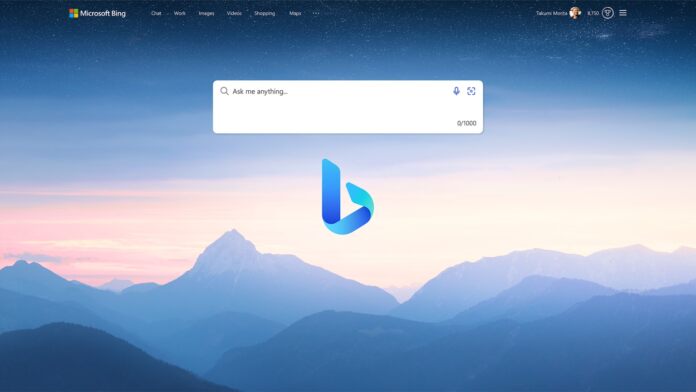Microsoft Bing is one of the leading search engines in the world, but it still lags far behind Google in terms of market share and revenue. Despite the launch of Bing Chat in February and the subsequent success of the AI search chatbot, Bing seems to be losing market share again. Below we will examine some of the data charts that illustrate Bing’s search market share problem and how it affects Microsoft’s advertising business.
According to Statcounter Microsoft Bing’s desktop search market share was 7.14% in April, while Google Search has 86.71% of the desktop market. You may be thinking what’s the problem, After all, Google has always been the dominant search player. True, but Bing Chat is supposed to turn the tide and push some of the market towards Microsoft.
It seems that is not happening at all. While Microsoft boasts of Bing now having over 100 million daily active users, the search engine’s market share is decreasing. In fact, Bing Chat does not seem to have done anything to boost Bing’s market share. In October 2022, pre-AI chatbot Bing had a peak market share of 9.92%.
Interestingly, April 2023’s 7.14% market share is a year-on-year decrease. During April 2022, Statcounter measured Bing as having an 8.05% share of the desktop market. When you add mobile and all devices to the equation, it is even worse. Bing has just a 2.79% overall market share, whereas Google continues to dominate with 92.63%.

Perhaps all those stories – of which I have also written – about Google being under threat in the search market are premature. Bing Chat is not the driver of mainstream interest in Bing and does not even seem to be moving the needle upward in terms of market share. While it is anecdotal, the only people I know who use Bing Chat are those in tech or those who use it as a tool.
General users do not see it as a viable search alternative. It is a fun toy to them, something to use a few times to have fun with the AI before moving on. For real searching, the regular type-and-receive system remains more efficient. Perhaps Bing Chat and search AI can change that in the future, but right now it is too time consuming and too unreliable as a search tool. People do not want a conversation; they want their search results as quickly and as concisely as possible.
Bing’s Challenges and Opportunities
Bing faces many challenges in the search engine market, such as Google’s dominance, user loyalty, brand recognition, and quality perception. Moreover, Bing has to contend with emerging competitors, such as DuckDuckGo and Yandex, that offer alternative search experiences and values to users. Bing Chat may be able to push back against those challenges, but rivals such as Google are also exploring AI in their search tools.
Even so, Bing also has opportunities to improve its position and performance in the search engine market. For example, Bing could leverage its integration with Microsoft’s products and services, such as Office 365, LinkedIn, Skype, and Teams, to offer more value-added features and solutions to users. Bing Chat’s ability to integrate seamlessly with those solutions is a powerful ability.
Certainly, as a productivity tool Bing Chat is fantastic. It is no coincidence that Microsoft is targeting AI integration across its services, such as with Microsoft 365 Copilot, Azure OpenAI Service, and GitHub Copilot. The technology that underpins Bing Chat may end up being more valuable to Microsoft than the chatbot itself.
In March, Bing traffic growth was outpacing Google. Similarweb, an analytics company, reports that Bing’s page visits have increased by 15.8% after adding AI features, while Google, the dominant search engine, has seen a slight drop of almost 1%. Interest in Bing is growing, so perhaps the overall market needs to catch up.



